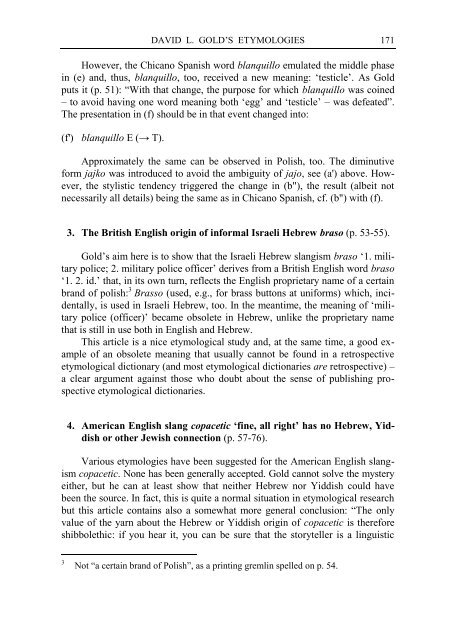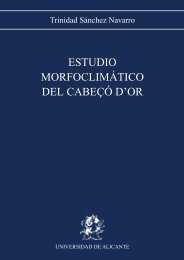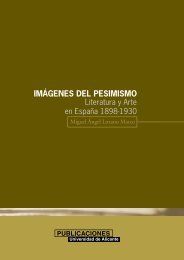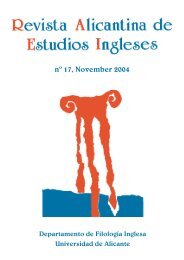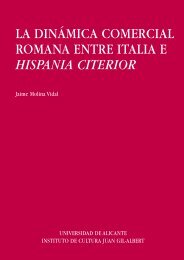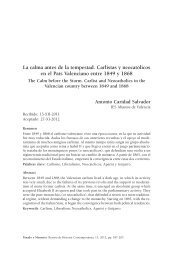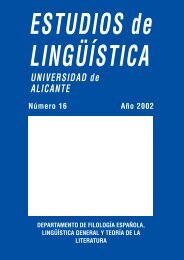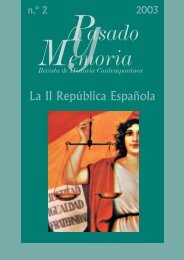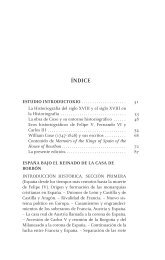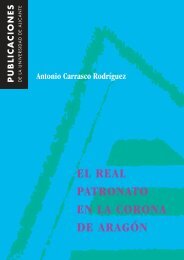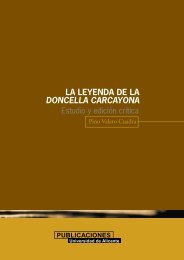DAVID L. GOLD'S ENGLISH, JEWISH AND OTHER ETYMOLOGIES ...
DAVID L. GOLD'S ENGLISH, JEWISH AND OTHER ETYMOLOGIES ...
DAVID L. GOLD'S ENGLISH, JEWISH AND OTHER ETYMOLOGIES ...
Create successful ePaper yourself
Turn your PDF publications into a flip-book with our unique Google optimized e-Paper software.
<strong>DAVID</strong> L. GOLD’S <strong>ETYMOLOGIES</strong> 171However, the Chicano Spanish word blanquillo emulated the middle phasein (e) and, thus, blanquillo, too, received a new meaning: ‘testicle’. As Goldputs it (p. 51): “With that change, the purpose for which blanquillo was coined– to avoid having one word meaning both ‘egg’ and ‘testicle’ – was defeated”.The presentation in (f) should be in that event changed into:(f') blanquillo E (→ T).Approximately the same can be observed in Polish, too. The diminutiveform jajko was introduced to avoid the ambiguity of jajo, see (a') above. However,the stylistic tendency triggered the change in (b"), the result (albeit notnecessarily all details) being the same as in Chicano Spanish, cf. (b") with (f).3. The British English origin of informal Israeli Hebrew braso (p. 53-55).Gold’s aim here is to show that the Israeli Hebrew slangism braso ‘1. militarypolice; 2. military police officer’ derives from a British English word braso‘1. 2. id.’ that, in its own turn, reflects the English proprietary name of a certainbrand of polish: 3 Brasso (used, e.g., for brass buttons at uniforms) which, incidentally,is used in Israeli Hebrew, too. In the meantime, the meaning of ‘militarypolice (officer)’ became obsolete in Hebrew, unlike the proprietary namethat is still in use both in English and Hebrew.This article is a nice etymological study and, at the same time, a good exampleof an obsolete meaning that usually cannot be found in a retrospectiveetymological dictionary (and most etymological dictionaries are retrospective) –a clear argument against those who doubt about the sense of publishing prospectiveetymological dictionaries.4. American English slang copacetic ‘fine, all right’ has no Hebrew, Yiddishor other Jewish connection (p. 57-76).Various etymologies have been suggested for the American English slangismcopacetic. None has been generally accepted. Gold cannot solve the mysteryeither, but he can at least show that neither Hebrew nor Yiddish could havebeen the source. In fact, this is quite a normal situation in etymological researchbut this article contains also a somewhat more general conclusion: “The onlyvalue of the yarn about the Hebrew or Yiddish origin of copacetic is thereforeshibbolethic: if you hear it, you can be sure that the storyteller is a linguistic3Not “a certain brand of Polish”, as a printing gremlin spelled on p. 54.


